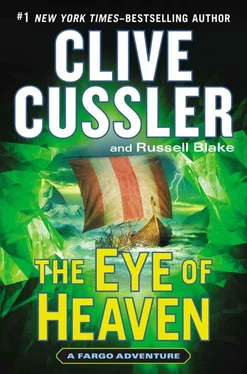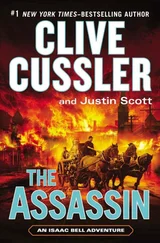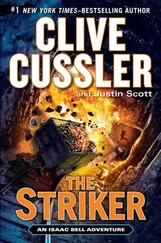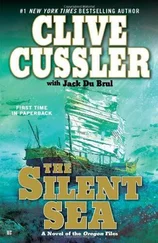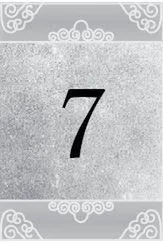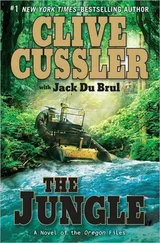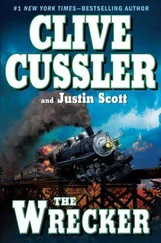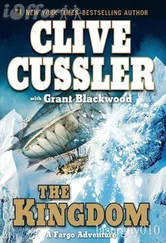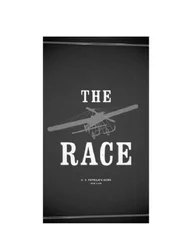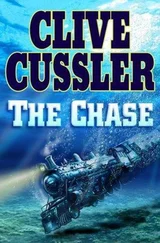The brother had reluctantly relayed the discussion to Selma. Lazlo had begged him to wire two thousand pounds to the Western Union in Vientiane a month and a half before to help fund his ongoing search and get him out of a “spot of trouble,” as Lazlo had put it. When pressed, he’d said that he’d run afoul of the law in Vang Vieng and would be escorted to Vientiane by the police so that he could pay the outstanding fine he owed. His brother had sent the two thousand with the warning that there would be no more money. Lazlo had assured him it would be more than sufficient and that he was close to a discovery which would end his ongoing financial difficulties forever and make the whole family rich.
Since then, there hadn’t been any communication, and the brother was afraid that Lazlo had finally gotten himself into a situation he couldn’t readily get out of.
Their guide turned out to be a young man in his mid-twenties named Analu, who spoke passable pidgin English in a high-pitched, excited voice. He proudly escorted them to his vehicle: a ten-year-old Isuzu SUV with fading red paint and questionable tires. When Sam told him they were bound for Vang Vieng, he smiled, offering a dental display that was every oral surgeon’s dream.
“You backpacking? Tubing?” Analu asked.
“Uh, no. We have a friend who we think might be up there.”
“Lots of people go and get hurt on river. Some die. Every year. Used to be crazy.”
“Used to be?” Remi asked.
“Yeah, uh-huh. Big tourist town, many kids party. But now not so bad.”
“What happened?” Sam asked, curious.
“Government tear down all river bars.”
“So there’s no drinking?” Remi said. “That sounds like hell on earth for Lazlo …”
“Still plenty drinking. Lots in town. Same-same but different. And few bars rebuild on water. Friends of police. Family, cousins, brothers, yeah?”
“I think I understand. So you know the place?” Sam asked.
“Yeah, sure, uh-huh. I take you now?”
“How far is it?”
“Three, maybe four hour. Road pretty good. No rain. Not so good in rain.”
“Are there hotels up there?”
“Sure, uh-huh. Plenty good hotels.”
“Well, then,” Sam said, “let’s get going. The day’s not getting any younger.”
They piled into the SUV and the engine started with a cloud of ominous black smoke and then began idling roughly on its three remaining cylinders. Sam silently wondered where Kendra had gotten the tip for their new friend.
Analu pulled into traffic with a casual disregard for the oncoming vehicles — an effort that was rewarded with ample honking. He floored the pedal and made a gesture through his open window that Sam interpreted as a sign of friendly acceptance. The little SUV lumbered forward like a losing boxer at the end of the eleventh round after swerving to avoid a delivery van by a matter of inches, which didn’t faze Analu in the least.
Ten seconds later, a black Nissan sedan rolled from the curb half a block behind and took up a trailing position, the two Laotian men in it serious, their attention focused on the SUV. The passenger made a call, as their quarry took the on-ramp to Route 13, and, after a terse discussion, gave instructions to the driver, who dropped back another fifty yards.
Once out of the Vientiane area, the road became a flat, two-lane strip in marginal condition, with swarms of motorcycles buzzing past each time the Isuzu neared a town. As far as Sam could tell, there were no discernible rules of the road and by the second hour he’d grown accustomed to near misses and kamikaze riders racing toward them in the wrong lane, pulling to one side to safety moments before impact.
To their surprise, lush farmland with almost neon hues of green stretched for miles on either side of the highway. They’d been expecting jungle and rain forest and instead seemed to be in a tropical agricultural strip that went on endlessly, the wind blowing twisted waves of ripples across the fields.
For all their misgivings, Analu avoided killing either them, or any other drivers, and offered a running commentary on the various communities as they drove north. Some of his asides were humorous, some sad, but all world-weary, the result of living in a society where poverty was endemic and corruption was an expected aspect of any form of authority.
As they neared their destination, Remi pointed to a string of mountains thrusting into the sky. “Oh, look. That’s really beautiful, isn’t it?”
“Karst formations. Limestone eroded away by the river over time,” Sam said.
“It’s like something out of a movie.”
Traffic increased as they drew closer to town and soon they were part of a long line of cars inching forward like a frustrated concertina as they waited for a herd of cattle to cross the road ahead of them.
“What first stop? We almost there,” Analu chirped, leaning on his horn occasionally to break the monotony.
“The police station.”
Analu stared at Sam with wide eyes in the rearview mirror. “You sure?”
“Never more so. And we’ll need you to translate if they don’t speak English,” Remi said.
The expression on Analu’s face clearly indicated he wished he’d asked for more details about their errand before accepting the job. As a native, he’d been raised to understand that going to the police station was right up there with juggling hatchets in terms of prudence. Still, he put on a brave show and nodded as though he hadn’t a care in the world. Which would have been more convincing if his face hadn’t blanched at least three shades lighter.
When they reached the town center, Analu made a right turn and drove up a block, then parked in a muddy lot in front of one of the few concrete buildings, the rest fashioned out of wood and painted gaudy colors. He shut off the engine, which wheezed like a chain-smoker before expiring with a shudder, and they climbed out into the muggy swelter. Sam eyed the building, which seemed barely large enough to house a few desks and a cell. He motioned for Analu to lead the way.
Inside, two wiry men with thick heads of greasy black hair sat behind a counter, smoking hand-rolled cigarettes, their uniforms stained with sweat despite the fan blowing a tepid stream of air their way. A portable radio on one of the desks blared a pop song that would have been insipid in any language. They looked up with drooping eyes as Analu made a cautious introduction. One of the officers stood, went into the back, and emerged after half a minute with a short, plump man in his forties who looked like he’d just woken up. The man buttoned his uniform shirt with clumsy fingers and then barked an annoyed question at Analu, who smiled with trepidation and embarked on a rambling explanation of why he’d interrupted the captain’s afternoon rest.
The captain mopped at his perspiring face with a soiled cloth handkerchief and grunted and then asked another question, this time with a distinct tone of menace. Analu nodded like a buffoon and turned to Sam.
“He want to know what you looking for. I tell him you important guests of Laotian people and have questions, yeah?”
Sam cleared his throat. “Tell him that we’re looking for a British man who was either in custody or owed money to the police here about a month or so ago. The gentleman’s name is Lazlo Kemp.”
The plump man’s eyes narrowed at the mention of Lazlo’s name. Analu translated and the captain waved him away with an abrupt gesture, then fixed Sam with a calculating stare.
“What you want with him?” the man demanded in fractured English.
“We’re friends of his. We haven’t heard from him for months. We’re worried. And we have news for him,” Remi said. The official ignored her, waiting for Sam to speak.
Читать дальше
